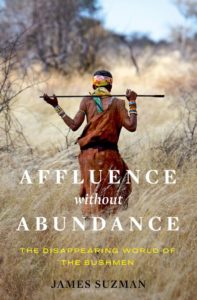Affluence Without Abundance, Part 1: Economics, health, and happiness
In this country, mentioning any deviation from capitalism flips people’s thoughts to communism and socialism.
This black-and-white thinking explains why Reagan and Thatcher opposed Nelson Mandela fighting Apartheid, instead supporting a blatantly racist regime. In fact, they supported a party infused by supporters of Nazis. We throw the term Nazi around today to mean figuratively, but I mean literally. The creators of Apartheid included people who actively and violently supported Hitler in the 30s and 40s.
Capitalism is young and untested in today’s world
1776, the year of the birth of the United States, may seem long ago, but recent in some contexts.
1776 is also when Adam Smith published The Wealth of Nations. Since then capitalism has spread and come to dominate most of the world. Under certain conditions it works, possibly best. Still, it has never solved some challenges, such as the tragedy of the commons, overproduction, and the principle/agent problem.
As conditions change, solutions must too to solve the problems as they are, not as they were, as we imagine them, or as we want them. Otherwise solutions to non-existent problems risk creating more problem. A major condition today that few could have conceived of a few generations ago is that human activity can change the environment. We can warm the globe, cause species to go extinct, deplete resources our societies depend on, and so on.
In economic terms, externalities we considered irrelevant turn out to matter—significantly, on a global scale. Any solution that fails to account for these externalities won’t solve today’s problems, no matter how well it solved past problems.
The 242 years since 1776 may seem long. Many cultures have lasted longer with other economic systems and governance. If we want our culture and economic system to endure, we would do well to learn from what works. As Nobel Laureate Richard Feynman said “It doesn’t matter how beautiful your theory is, it doesn’t matter how smart you are. If it doesn’t agree with experiment, it’s wrong.” Economists and politicians don’t seem to follow this principle, trying to bend observation to fit their theories.
Capitalism is a nice theory. Communism is the only alternative people think of. I hadn’t considered alternatives, but a book I recently read, Affluence Without Abundance, showed me otherwise. It’s about hunting-and-gathering bushmen in southern Africa.
I expected to read about other cultures, not to learn about mine. I like parts of my culture, such as the internet, solar power, and anesthetics and have no interest in living as a hunter and gatherer, but I’d be a fool not to learn from their success.
What success?
Their culture has endured for 200,000 years.
Two Hundred Thousand Years.
Let that sink in. The United States and capitalism have been around about 1/1000th of that time. The Great Pyramid of Giza has been around about 1/50th.
Read the book to learn about their world, but suffice it to say that our economic theories don’t describe their behavior—not capitalism, not communism. None of our theories. Our general response is to call them “developing.” For a 242-year-old culture to call a 200,00-year-old one developing strikes me as ironic to the point of ignorant.
Major difference: Property
Quoting the book, p. 184, reveals how our black-and-white thinking blinds us to how our views don’t work in their context.
Like the historical documents that inspired Namibia’s new constitution—the Magna Carta, France’s Declaration of the Rights of Man, the American Declaration of Independence, and the Universal Declaration of Human Rights—there is a notable omission from it. For while it asserts that “no persons may be discriminated against on the grounds of sex, race, colour, ethnic origin, religion, creed or social or economic status,” it also reaffirms property rights and implies that material inequality is not only acceptable but also a natural and self-evident truth.
I never thought otherwise about property rights and material inequality, but agriculture created real estate, law, and much of our senses of ownership. The book says that for these enduring cultures,
the most obvious form of inequality is material inequality.
The book describes one man there, who
simply couldn’t imagine how it was possible for people to be “equal” in any fundamental sense if some were so much richer than others. To him material equality was a precondition for equality in other respects.
The kind of egalitarianism practiced by hunter-gatherers was not born of the ideological dogmatism that we associate with twentieth-century communism or even the starry-eyed idealism of New Age “communalism.” Rather it was the outcome of interactions between people acting explicitly in their own self-interest in a highly individualistic society.
The book clarifies that private property is important. “Without it there would be no reason to share.” They don’t abolish it.
As far as they and many other hunter-gatherers were concerned, private property in itself is not what’s problematic—it’s the desire to needlessly accumulate private property or to control its production and distribution.
In part this is a practical issue. With no permanent homes, the need to move camp as many as ten times in a year, and no option but to carry all their individual possessions when they did, having too much stuff was quite literally a drag for hunter-gatherers. . . Men typically only ever owned their clothing, blankets, hunting kits, and a few small odds and ends, like musical instruments. Women only ever owned their clothing, digging sticks, and jewelry. Yet these objects were owned individually and absolutely. Theft from one another was considered unconscionable.
Differences this big are opportunities to learn. Historically, instead, in defiance of Feynman’s admonition, we’ve imposed our system on them, which has undermined their culture, creating inequality, alcoholism, and so on.
More importantly, we haven’t learned what enabled their culture to endure nearly 1,000 times longer than ours so far. Ours may be conquering theirs, but may also be undermining itself, unable to stop from drowning itself in garbage, pollution, and waste, expanding to pave or mine any place we can, no matter how much beauty we destroy or how many species we cause to go extinct, assuming we don’t blow ourselves up first.
Can we at least acknowledge that their practice has succeeded in ways our theories can’t understand or explain?
Is that reason enough to think beyond capitalism and communism, maybe to consider that we don’t need perpetual growth to survive just because incomplete theories say we do.
Happiness and health
Cultural durability would only matter if it improved people’s lives. The book says they have more leisure time, eat more healthily, and have closer relationships than we do, leading to more happiness.
Agrarian societies have had major problems, see the quote below, that capitalism didn’t solve. People dying solved them, at least for those who lived. Those solutions didn’t help those who died. According to the book,
Livestock perishing in biblical numbers as a result of plagues like the rinderpest was not the only viral peril farmers faced. Living in such close proximity to increasingly intensively farmed animals meant that some livestock diseases adapted to human hosts. Our historic love affair with beef brought us tuberculosis and measles, and our hankering for bacon and chicken wings ensures that every once in a while we are hit with terrifying new strains of influenza. These diseases hit early Neolithic populations particularly hard, because they were on the whole poorly nourished compared to hunter-gatherers. This was not only due to occasional poor harvests, but because their diets tended to be dominated by only one or two usually carbohydrate-rich crops that produced systemic vitamin and mineral deficiencies.
We might think we’re past such problems since we have more than enough food for everyone today, but that last sentence describes us today. Americans’ diets tend “to be dominated by only one or two usually carbohydrate-rich crops that produced systemic vitamin and mineral deficiencies.”
Poor nutrition contributes to many of our top causes of death.
How many billions of people have died in the past century from germs that reached humans from agriculture?
The book continues
The vulnerability of agricultural societies to famine, disease, and natural disasters meant that the expansion of the Neolithic was punctuated by catastrophic societal collapses. Genetic histories of modern European populations point to just such a series of catastrophic collapses that coincided first with the Neolithic expansion through central Europe around 7,500 years ago and then later with the Neolithic expansion into northwestern Europe about 6,000 years ago. These collapses may have been caused by disease. The mortality rates associated with them were between 30 and 60 percent, a proportion roughly equivalent to the mortality rates associated with the Black Death that stalked Europe in the fourteenth century. But the early Neolithic populations in Europe were small and spread out. This would have made it hard for plagues to be transmitted widely. Rather, it’s more likely that these deaths came about as a result of unsustainable farming practices, an overreliance on a small number of plant and animal species, and a couple of years of unfortunate weather—perhaps a sustained drought, too cold a winter, flooding, or a combination of all three.
When people tell me about the advantages of civilization, they talk first about freedom from pain and disease, but it looks like our agricultural ancestors saw plenty of pain and disease, as well as hunger and violence. They often then talk about stability and independence from our environments, but the historical trend seems the opposite. We’ve had many colossal collapses, while they’ve endured 200,000 years.
I believe Feynman would suggest that we revise our theories, which would change our strategies and lifestyles. I don’t know where we’d end up, but probably with less pollution, economic stratification, and resource depletion.
Read my weekly newsletter

On initiative, leadership, the environment, and burpees
